Search Results
Showing results 21 to 40 of 72

Hanford at the Half-Life Radiation Calculator
Source Institutions
This quiz lets you estimate your annual radiation exposure.
Piece It Together: Puzzle Hunt
Source Institutions
In this activity, learners follow clues to find five puzzle pieces, then assemble them. This activity works well with a whole group, individuals, or families.
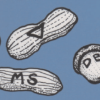
Acorns
Source Institutions
In this outdoor game, learners play the roles of gray or red squirrels gathering and storing a supply of food in "fall" and recovering enough of them to survive the "winter." Learners carry bags repre
Mystery Jars: Estimate Contents
Source Institutions
This activity puts a mathematical twist on the familiar “guessing jar.” No guesses allowed, estimates only.

Train Your Brain
Source Institutions
In this activity, learners play a trick on their own brain to see if the brain can learn to ignore distracting input. Colors and words are used to play the visual trick, known as a Stroop Test.

Dance Diagram
Source Institutions
Teams of learners use a series of stick figures made from pipe cleaners to model a dance routine. Then, they use this model to communicate to another learner who performs the dance routine.
Size Them Up: Learning About Volume and Capacity
Source Institutions
In this activity, learners will put a set of containers in order by capacity. Would the tallest container hold more or less water than the wide, short one?

Slush Rush
Source Institutions
In this online game, learners run an outer space drink stand and thirsty alien customers are on the way.

The Best Dam Simulation Ever
Source Institutions
This online simulation game explores the different consequences of water levels on the Columbia River in the Pacific Northwest.
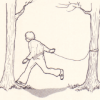
Tree Tally
Source Institutions
In this outdoor activity and fun race, learners first find the most common type of tree in a forest site.
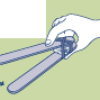
Eat Like a Bird
Source Institutions
Birds' beaks are designed to allow birds to get the most of whatever food they need. In this activity, learners get an idea of how different beak shapes suit different food sources.
Mystery Jars: Make Your Own: Estimating and Counting
Source Institutions
Learners make a counting/estimating jar to exchange with friends or bring home.
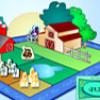
Bet the Farm
Source Institutions
This is an online game about the complexities of farming. Learners will "draw" cards and make decisions about how to take care of their farm.

Animal Guess Who
Source Institutions
In this game, learners take turns guessing toy animals from around their house based on the toy's characteristics.

Sustainable Fishing
Source Institutions
In this activity, learners use a model for how fishing affects marine life populations, and will construct explanations for one of the reasons why fish populations are declining.

I Am/Who Has: A Litter Matching Game
Source Institutions
In this game, learners match descriptions of marine debris (shoes, batteries, paper towels, etc.) to images of these items.
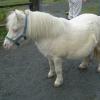
Wild or Domestic Animal Game
Source Institutions
In this quick activity (page 2 of PDF), learners will play a game using their observation and listening skills, interpreting clues from each other to deduce their secret animal identity.
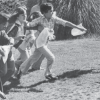
Population Game
Source Institutions
In this outdoor game, learners simulate a herd of deer trying to survive in an area called the "home range." Learners explore the concept of "carrying capacity"—what size population of an organism can

Taste Match Game
Source Institutions
In this activity (3rd activity on the page), learners taste test different foods and categorize them as sweet, bitter, sour, or salty. Learners compare their results with the group.
Narrow It Down: Asking Yes-No Questions
Source Institutions
In this activity, the learner asks yes-no questions to identify a secret object (similar to Twenty Questions). This game is easy to adapt for different ages and different kinds of contexts.
